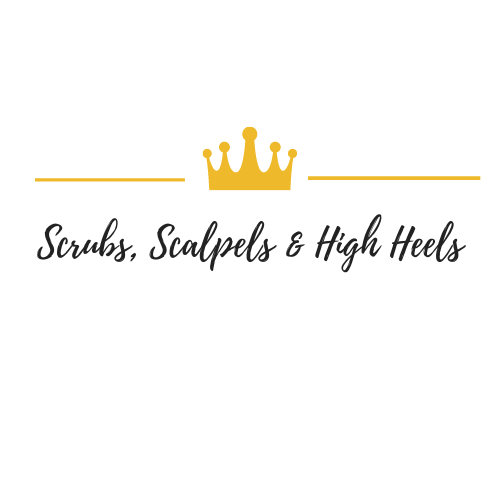Surgery. And the 6th Sense.
- Scrubs, Scalpels & High Heels

- Mar 16, 2023
- 3 min read
Updated: Mar 17, 2023
Walking down my drive home from the hospital, I felt good about recognizing a fracture that had been missed on the initial assessment of the patient. I was called for a consult, and after examining the patient, I felt there was something that we were missing. I had a gut feeling. I asked for some more x-rays, and it turns out he had a fracture we had missed. I was walking home feeling happy that I made a difference, and it got me thinking about how my gut always knows. So many times in life, I have a gut feeling that I sometimes can't place. And usually, it's because something is not right. My 6th sense always knows- at work, with friendships, and in romantic relationships. Often, I would ignore it, sometimes chucking it up to me being anxious. May be, it's because of my desire to see the good in people, or it's about my passion for work and saving my patients.
I've realized that your 6th sense, combined with clinical skills and knowledge, can be invaluable in a surgical career or just generally as a clinician. It makes me think of what one of our medical school lecturers used to say. He often said, 'the best students do not always make the best clinicians'. This is because we spend many years in medical school and early postgraduate years understanding the basics of medicine and the science behind disease processes, medications etc., focusing on passing exams and dealing with theoretical patients. I had classmates who could memorize encyclopedias and reproduce word for word in exams. We all became good at this to some extent, but in real life, everyday clinical practice, the cases are only sometimes so straightforward. As surgeons, we are trained to understand the science behind, the indications or contraindications for surgeries and what steps to follow, but like many things in life, it's not always black or white. Regular clinical practice demands that you combine the knowledge you gained and use almost your normal five senses (sometimes all at once) and often your sixth sense.
Sight and touch may be the most used senses in surgical practice. You look at the patient and their varying reactions; you look at results; you understand the triage room, consultation or OR settings; your colleagues' facial expressions; you look at lab and other investigation results. Just one look can tell you so much. And there's no surgery if you're not holding instruments or touching the patient, right? How does their body feel? Is that swelling soft or hard? Did you make a straight incision? Did I reduce that shoulder dislocation? My hands are invaluable to my career. We also need our hearing. In my last blog post, I discussed communicating effectively with your patient. We want to hear how their injuries happened. when you auscultate, was that a murmur? Is that baby breathing well? Was that the sound of an ambulance sirene heading to the emergency? Is the patient going into asystole? Is that a monitor beep I hear? And then, oh, the smell! It would often be unpleasant if you have to rely on your sense of smell, but it can be so helpful. In our settings, you often find patients with infected wounds and a very purulent odour. Or the smell of stale blood. Or anaesthesia when the circuit gets disconnected. Or alcohol from intoxicated patients.
I am trying to remember when I had to rely on my sense of taste at work. Other than tasting food (laughs). But my instincts are always at the forefront. We experience the sixth sense every day. Growing up, I used to be very good at composition and writing. I would write stories and know all the details intuitively. My 'work 6th sense' has developed over time. With time, you get a sense of a critical patient immediately after seeing them. It could be a product of experience in a low-resourced setting or combining all my other senses, but it helps me be a good clinician. As doctors and scientists, we want to prove everything and base every decision on rational information and analysis, but working in less-than-ideal settings, this is only sometimes a privilege we can afford. In these times, that gut feeling may be of enormous value. Occasionally, we have a combination of the two. Life can be pretty abstract sometimes, and the only way you can make a decision is by trusting your intuition. I've come to realize that our intuition impacts us in a multitude of ways.





Comments